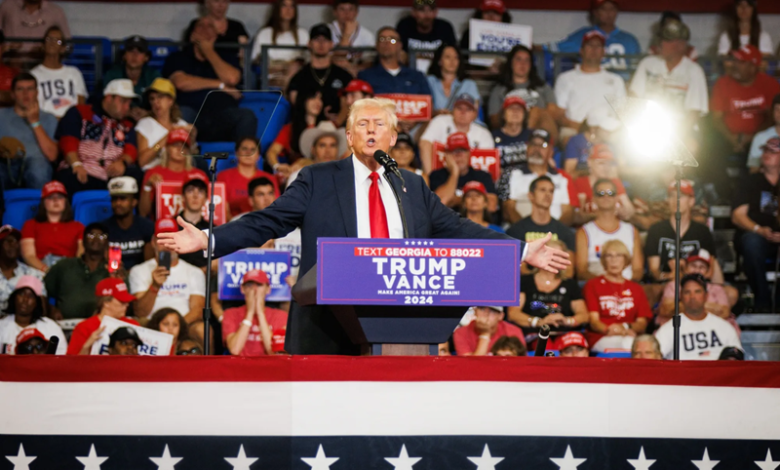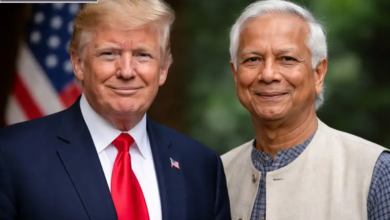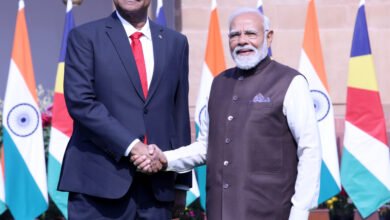Trump Accuses Iranian Hackers of Breaching Campaign Site, Criticizes US Government’s Handling of Foreign Threats

News Mania Desk/Agnibeena Ghosh/11th August 2024
Former President Donald Trump has publicly accused the Iranian government of hacking one of his campaign’s websites, condemning the breach as a significant threat to cybersecurity. Trump made these allegations on social media, asserting that although the compromised data consisted only of publicly available information, the intrusion was a serious violation. He used the incident to criticize the current U.S. administration, accusing it of weakness and ineffectiveness in handling foreign threats.
The Trump campaign disclosed the breach on Saturday, claiming that Iranian actors were responsible for accessing and distributing sensitive internal documents. According to the campaign, an Iranian military intelligence unit sent a spear-phishing email to a senior official within the campaign from a compromised email account of a former advisor in June. Despite these claims, the campaign has yet to provide concrete evidence linking Iran directly to the hack.
Microsoft’s recent report supports the notion of increased foreign interference in U.S. elections but attributes the activity primarily to Russian and, more recently, Iranian sources. The report detailed how an Iranian military intelligence unit, known as Mint Sandstorm, targeted a U.S. presidential campaign with a phishing email sent from a compromised account. This attack, which occurred in June 2024, aligns with the Trump campaign’s allegations, though the specifics of the breach remain murky.
In response to the hack, Trump campaign spokesperson Steven Cheung denounced the interference as coming from “foreign sources hostile to the United States” and criticized media coverage of the stolen documents. The National Security Council has acknowledged the seriousness of foreign interference but has referred the investigation to the Justice Department for further action.
Iran’s mission to the United Nations has denied any involvement in the hacking incident. The Iranian government maintains that it has no intent or motive to interfere in U.S. elections, despite ongoing suspicions and historical tensions. These tensions are heightened by Iran’s threats of retaliation following the 2020 drone strike that killed General Qassem Soleimani, a key figure in Iran’s military.
Recent developments in this context include criminal charges against a Pakistani national allegedly linked to Iran, who is accused of plotting assassination attempts against U.S. political figures. Court documents suggest Iran’s interest in targeting its adversaries and avenging Soleimani’s death, though this case is separate from the current hacking allegations.
Politico’s initial report on the hack revealed that the Trump campaign had received emails from an anonymous account containing a dossier on Republican vice-presidential nominee JD Vance, dated February 23, five months prior to Vance’s official selection. This raises questions about the timing and authenticity of the documents and the campaign’s cybersecurity practices.
Microsoft has declined to comment further beyond its report, which has highlighted a broader trend of increased foreign cyberattacks and interference efforts as the election season intensifies. Vice President Kamala Harris’ campaign has yet to address the hacking incident or disclose its own cybersecurity measures.
As the investigation continues, the political ramifications of this hacking incident underscore the challenges of securing electoral processes and the ongoing battle against cyber threats from foreign adversaries.






